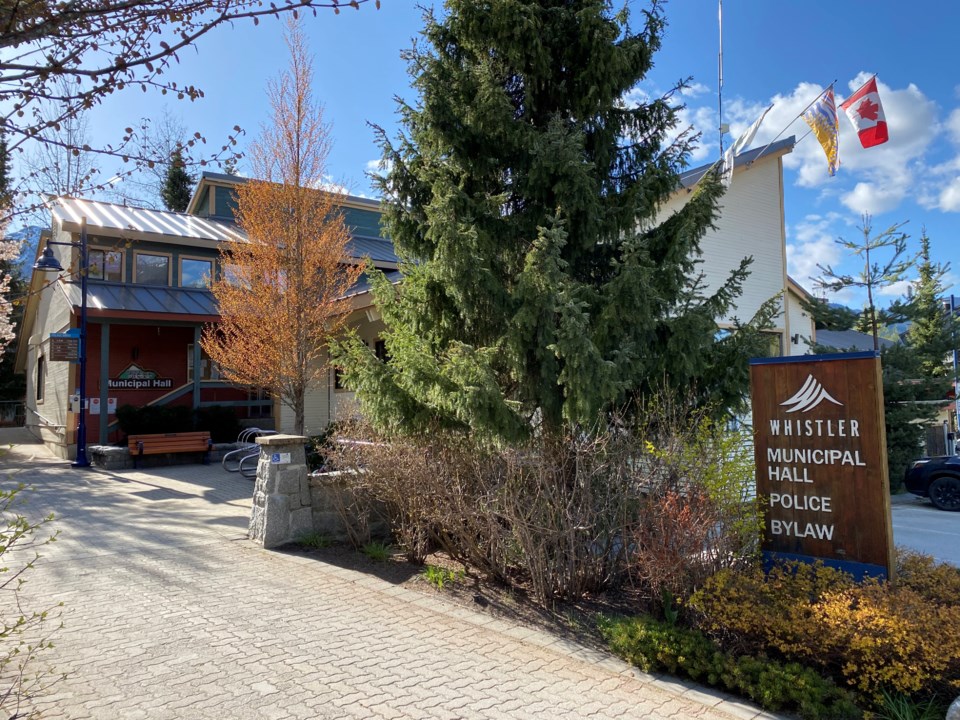From July 5 to 8, Whistler hosted the Canadian Institute of Planners conference, which brought together more than 650 urban planners in person with another 350 online from across Canada to discuss the future of urban planning in Canada.
The four-day conference featured speeches from Whistler Mayor Jack Crompton, MP Patrick Weiler and keynotes from engineer Ramy Nassar and former New York City Parks Commissioner Mitchell Silver, along with 40 sessions, 10 learning tours and 10 workshops.
The conference touched on various topics pertaining to modern urban planning in Canada, but there were three main themes that stood out to the Whistler planning department: climate adaptation and mitigation; diversity, equity and inclusion; and housing.
Climate change, the housing crisis and the complex labour market are issues that every community in the country is dealing with and addressing in unique ways. But how can planners tackle multiple concurrent crises at once?
According to Jessie Gresley-Jones, general manager of planning and resort experience with the Resort Municipality of Whistler (RMOW), these challenges require long-term planning that goes beyond the four-year term limits of a council.
“When you look at climate or housing, those are not one-term mandate questions. These are decades of work. I think all municipalities will be facing tough questions around what are we doing to mitigate climate,” said Gresley-Jones.
“What policies can we develop and undertake, and how are we adapting? Last summer we saw the heat dome. We're seeing flooding. We're seeing coastal flooding, what happened in the Fraser Valley, and the frequency and intensity of storms. Those are all things that I think every B.C. community is trying to get their heads around.
“I feel quite fortunate that in Whistler, we have a department of individuals working on environmental stewardship. You see [RMOW climate action coordinator] Louisa [Burhenne] at council frequently. We have the capacity to focus on some of those big questions, but not every municipality has that capacity."
Smaller, more isolated communities are being impacted to a greater degree, in some cases, by climate change, "but they don't have the resources to be able to tackle that,” said Gresley-Jones.
“So I think that's part of the reason for a conference like this—to get a lot of voices in a room to be able to make connections, and not reinvent the wheel, [but] look to colleagues in a similar situation or similar geographic or climate area and pull really important lessons.”
One panel on housing featured speakers from BC Housing, Canada Lands Company and the Canadian Mortgage and Housing Corporation.
“My takeaway on that [panel] was there's not one magic solution. Every community has individual needs ... and unique ways that those solutions have to be implemented,” Gresley-Jones said.
“They pointed to some good examples, but I think what continued to come through was the need to have local governments, the province, the federal government, all at the table. Then also, we're really relying on the expertise of our non-profit providers and, in lots of instances, private partners."
At a session on pilot projects, it was noted that some places are trying new ways to tackle the housing crisis. In Iqaluit, for example, officials are in the process of doing a pilot on allowing recreational vehicle hookups in driveways as a way of opening up more temporary spaces for people to live.
However, while planners love a good pilot project, Gresley-Jones noted that it's difficult to do pilot projects related to housing in Whistler due in part to increased costs, as well as the complexity and difficulties that might arise when experimenting with private homes—which can lead to mistakes that directly affect people.
“At the end of the day, this is people's homes, and they're not an easy thing to kind of trial and make mistakes [with], and you really do want to make sure you're getting that right,” said Gresley-Jones.
Another challenge facing planning departments across the country is the labour crunch. With more baby boomers retiring and increasingly complex zoning and design guidelines nationwide, having enough staff to work through permits and policy has become difficult for many municipalities, including Whistler.
Staffing shortages, new provincial policies and last year's cyber attack on the RMOW conspired to create a permitting backlog at municipal hall.
Fortunately, the backlog is getting shorter as the years-long Land Use Contract rezoning process is finally wrapping up.
“I don't know if [labour challenges are] unique to planners. I think it's most professions as a result of just demographic shift and boomer retirement, which we should have seen coming. We maybe didn't do enough about it, and I think when we look at permitting times in every municipality, we're asked to do more and more with each file,” said Gresley-Jones.
With that in mind, planners should be looking to "extract more value" from each file they process, whether that's through community amenities or alignment with broader community policies (like Whistler's Big Moves Strategy), he added.
“We're trying to land a multitude of priorities on every file," he said.
While work continues on the comprehensive "enhanced rezoning" process for the Northlands near Whistler Village, aside from some ongoing housing projects, Gresley-Jones said he doesn't expect any big planning surprises for Whistlerites in the coming months.
“I think getting to the finish line with all the private sector employee housing files is a big priority for the team. [Municipal planner] Courtney Beaubien’s team under the policy group has been really focused on land use contracts, so we'll be doing some work planning in the coming weeks to look at the year ahead and determine what will be tackled,” he said.
“So I think we'll probably see some of the initiatives coming forward that have maybe been quiet for some time, but I don't see anything big and new that's going to surprise the public in the next while."




